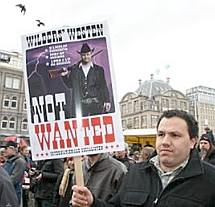For a change of pace, here’s a guest-post from Henrik at Europe News. A slightly different version of this essay was posted at his site on Wednesday.
 Switch off that PlayStation!
Switch off that PlayStation!
by Henrik R. Clausen
March 19 2008
If you happen to own one of these technological wonders that will allow you to play soccer on a screen, karate without bruises, shoot stacks of enemies without a scratch, and race through town at 180 km/h, one of the best things you can do for society may be to switch it off.
Why, you may wonder? What’s wrong with entertainment, or is it a matter of preserving energy so the next generation will still have some oil left to burn? Or is Wii that much better?
None of the above. It’s a marvel that we can go racing without risking mangled cars, can practice shooting in a virtual world, and can work in teams to recover immense treasures from forgotten dungeons. All without leaving the comfort of one’s home. And surely, looting dungeons of the ancients is much less criminal than looting houses downtown, not to mention the stakes when it comes to shooting.
But this deluge of entertainment — and the Internet at large provides much, much more — is causing a distraction into details and virtual options that distracts a lot of intelligent, well-educated, and well-intentioned people from something vital:
Getting influence has never been easier
And by this, I mean real, political influence that will change our societies for years to come. While it is tempting to enjoy the very beneficial physical circumstances we have in these times, democracy is too important to be left in the hands of the professionals.
Really. Professionals are great, and they’re paid to document exactly the opinion we want them to. But too much professionalism dismantles the quintessence of good democracy, participation by citizens. Take the European Union. It has a huge budget, great buildings sporting thousands and thousands of professional, well-educated, diligent and loyal workers. Yet, this staff does not a democracy make.
Or take our national political systems. Membership of political parties has plummeted, and (at least in Denmark) the parties are on quite strong economic support from the state. A few decades ago, this would have been ridiculous, as party membership of any kind was a natural thing, and the pooled resources went a long way towards what was needed to run a party. Today party membership and attending meetings is a minority interest.
Which, in turn, is a reason gaining influence is easier than ever. There’s less competition, more space to just walk in and get things done. It’s free-for-all, and it’s damn sure that people complaining about lack of political influence have never seriously tried to take any.
Still, some things are needed to join the party. As in every decent party, everyone has to contribute something. It may be knowledge, entertainment, skills, clothing, or coffee, but some contribution is needed. A list of relevant items:
| 1. |
|
Listening |
| 2. |
|
Reading skills |
| 3. |
|
Knowledge |
| 4. |
|
Philosophy |
| 5. |
|
Curiosity |
| 6. |
|
Diligence |
| 7. |
|
Rhetorical skills |
| 8. |
|
Writing skills |
| 9. |
|
Discipline |
| 10. |
|
Supportive friendliness |
| 11. |
|
Stamina |
| 12. |
|
Joy of swimming |
A bumper bundle, ain’t it? Sure would be tempting to go back and switch on that PlayStation anyway, where you just got Strength, Dexterity, Constitution, Intelligence, Wisdom and Charisma to deal with, and the computer will even keep track of those for you, in case you forget.
But then .. how many of the politicians you know score high in all of these? Even just ‘fair’? The competition isn’t too scary, actually. And not all of these skills need to be top-notch, and since they’re trainable, they can improve over time. One of the best ways to train them is to be around people who are better than yourself, notice what they’re doing and emulate it. Thus, going to meetings, and apply that listening skill to pick up good stuff.
Let’s look at them in detail:
– – – – – – – – –
1) Listening
This is first, because without this one it’s near impossible to get very far. We need to listen, with real respect, to those who are more skilled and experienced than ourselves. It doesn’t mean that we’ll take what these persons say as gospel, but it does mean to take their statements and their logic with the benefit of doubt, and consider with curiosity statements and details that at first sight seem strange. Listening is essential to learning, and people who don’t have this skill tend to turn autocratic very fast.
2) Reading skills
This is quite obvious, but needs to be mentioned. Anyone looking for influence on society and the future needs to read up left and right, including official stuff, reports, books, and newspapers, Preferably a good blog or two on top, as much of the best intelligence can be found there (as can some of the worst, for that matter), and many good ideas are circulated on blogs where they can be picked up by smart people and passed on.
3) Knowledge
One may be tempted to believe that the politicians we see on television know a lot more than we do, not least if they say things abstract or incomprehensible. Reality is somewhat different. Our politicians are so busy they hardly have time to read books, which is frequently reflected in incoherent, confused, hasty and downright stupid reactions from their side.
Take Yugoslavia. When it fell apart, politicians who had never bothered digging into the history of the country were jumping past each other to tell the citizens of the country what to do — without even basic knowledge of the history of the country, the Ustasja regime or the crimes in WWII. This led to a disaster which in hindsight could have been avoided, had the history of the country been respected. OK, that was a controversial one. Don’t worry, it won’t be the last.
Another reason to have a healthy supply of knowledge is that once you seek some influence on society, detractors will appear. They frequently sling around charges of racism, fascism, and the like, in order to make you stand back and leave the spoils of influence to them. That’s not what we’re in the game for, so instead it’s better to outwit these wannabes. For that’s usually all they are. The very common charge of ‘fascism’ is countered most effectively by knowing what fascism is, and the details of what makes it bad. It turns out very frequently that those accusing others of fascism have significant fascist attitudes themselves. Joseph Stalin was a prime example of this twisted logic. Stalin used this to get rid of his opponents by sliming them. Knowing how to avoid this trap is good.
4) Philosophy
Now, this is getting weird. We need philosophy to make a difference? Absolutely yes. We need some coherent system behind our line of thinking, or it will very easily devolve into populism. If not at first sight, then under pressure. Many interesting philosophies exist, but it’s not quite arbitrary which one to pick. It needs to be one that you have confidence in, that you believe will benefit people. Technically speaking, one can also succeed with one that exploits people, disempowers them and lets the people of influence run with all the benefits. But this I find too unethical to mention, so better focus on philosophies that will bring wide benefit in the long term. It doesn’t quite matter if it’s socialist, capitalist, conservative or libertarian, as long as it is one trusted to improve the life quality of people at large. Having one with clear, abstract principles is a huge advantage against the trap of populism. Becoming a teacher of philosophy is quite possible — but in disguise, of course, a disguise of politics. Opinions abound, but those held together by a coherent philosophy are rare, and valuable.
5) Curiosity
This is easier. To be involved in society and forming the future, curiosity for a lot of things will be needed. One might start out with a single issue, like I personally started out examining the deceit surrounding the Turkish EU negotiations, only to find that the principles involved are so interesting and so widely applicable that there’s no end to what contexts the principles can be applied to. It’s endless.
6) Diligence
Perhaps not obvious, but worth remembering. One gets only so far without an appetite for work and processing of knowledge, as well as for keeping working under harder circumstances. Diligence is one of the most important qualities if one wishes to go really far into politics and influence. But it’s booby-trapped! If the workload gets too heavy, if no time or capacity is left for fun and enjoyment, working too hard may lead to making serious mistakes of taking corruption or playing too many intrigues. Better to take some time off before it gets too bad, and let someone else take the bribe and have the scandal.
Related to diligence is a bit of patience. We may have all wonderful ideas about how to change society and improve the future, but quite frequently very few are receptive to the revolutionary, progressive ideas. In that case, it might be useful to write an essay to seed the ideas with some other people, release it to the world for others to pick up and ‘steal’ the ideas, then respond with appreciation when your great ideas suddenly come back from someone else. No need to claim them back, of course — what matters is that great ideas are put into action, not who specifically does it. It might be, of course, that the ideas get lost in space, never to return. If they’re really important they can be taken for another spin. But hey — it might be that they were not really so great to begin with, and that it was better that they went into oblivion.
7) Rhetorical skills
By now, you may wish that you were back at the PlayStation trying to figure out if the shotgun or the rocket launcher is the most appropriate weapon for your next enemy. But this article is relentless. Rhetorical skills can be subdivided into at least three kinds:
- The logic of discussion and arguments
- The skill of maximizing emotional impact
- The skill of diverting attention from important points
The first of these is the classical Greek art, arguably their most important contribution to civilization. Arguably, in that I will argue that is was more persistent than their invention of democracy (which was re-invented in Europe anyway), and much more systematically useful than the synthetic idealism they passed off as ‘science’. Rhetoric is classically described as the third of the Trivium (not to be confused with ‘trivial’, BTW), the two first being grammar and logic.
While this might sound real alien, it actually isn’t. Grammar we usually master quite easily. Logic is something that we may or may not appreciate on its own, but it has a lot of meaning in debates, where it’s essential to figure out how to construct a good argument, what a real counterexample means and the like. Rhetoric, in this context, is the art of maximizing debate skills, making your presentation and your arguments as compelling as possible. Interestingly, it’s very rare to convince an opponent. But the 100+ ‘lurkers’, who just read your thread, will have a great time enjoying a well argued debate, and will be inclined to adopt the point of view of the most compelling person. Which is what we want.
Rhetoric, as in formulating oneself in the way that causes maximum emotional impact, is a finer art yet. Churchill may be the best teacher.
Rhetoric, as in diverting attention from important facts, is discouraged.
The whole point of this, of course, is to do well in public debates. Blogs are great places to practice as you’ll find all kinds of opponents and allies, and will be able to try out various approaches. One of my favorites is “Show, don’t tell”, and it’s important. Everyone’s entitled to have an opinion — sure — but if your opinion is to be more than just that (ideally it’s also convincing, right?), the reasons for that opinion become more important than the opinion itself. Why bother accusing someone of being stupid if you can demonstrate it by picking apart his logic? Why just give your own conclusion when you can present the evidence it is based upon, thus helping everyone reach that same conclusion on their own? These skills are vital for maximum impact.
8) Writing skills
Once grammar, logic and rhetoric is covered, good or at least decent writing skills are also needed. Now, one doesn’t need to have the skills of Dostoyevsky, but a basic joy and mastery of presenting an article or a letter is needed. If one is a bit weak in this field, it can be compensated for by having a healthy supply of knowledge and sticking to the nuts and bolts of facts and reason.
9) Discipline
Before escaping for that PlayStation, please consider this. You may play a great karate master on the screen, but being one, also in terms of influence, takes real discipline, not just fast reflexes (well, being a karate master in real life also does). Real discipline means being able to stay focused on your target, even when obstacles or emotions blur your vision or distract your attention. It takes training, but the raw power of real discipline is staggering.
One example of useful discipline is to avoid ‘ad hominem’ attacks in blog debates. Your opponents are human just like yourself, and deserve respect. Their points of view, however, are a completely different matter. Since you’ve read up on facts, philosophy and logic, there’s a really good chance that your point of view is better substantiated than theirs, and it’s open season on theirs. And precisely the discipline of attacking the confusion, not the persons, will earn you a lot of support and goodwill out there. Even when attacked yourself, countering the attack, not the person, is the way to go. And it takes exactly one thing to do so: discipline.
10) Stamina
When going into the battlefield of public debate, chances are that you’ll be slimed. Stabbed, assaulted. Vilified. Insulted. Falsely accused. All kinds of nasty attacks will be coming your way. While it’s technically not a game (since you’re still reading, I assume the PlayStation is still off), it feels like this. One needs the ability to withstand quite a bit of heat without resorting to anger. And the attacks deserve to be handled suitably, including fast, appropriate reactions, adequate strength and suitable spells.
One of my favourite spells in this context is called ‘Libel’, and it is extremely effective in neutralizing the oft-used spells of ‘Racism’ or ‘fascism’. Pointing out that libel is punishable under the law usually cools off those overheated spell-casters instantly. Failing to react to these slanderous attacks has unpleasant long-term effects, not unlike poisoning. Immediate, fast reaction is good, and in case of libel will make it very clear that you find the charges utterly unjustified.
One may think that these personal attacks are too stupid to be taken seriously, but they do seem to be part of the game. Many, not least on the so-called ‘left’ of the political spectrum, simply use personal attacks in an attempt to make their opponents back down so they can have their (frequently quite confused) ways.
Standing up against these stupid attacks can be very unpleasant, but it’s important. Having a good cause, good documentation and good style will win eventually, and others will suddenly turn to you for support when they face similar trouble. And it can be navigated out of, for what’s important in society is not so much who decides as what is being decided. Rather obvious, in a way, but it bears repeating.
11) Supportive friendliness
After all this fighting, a good dose of friendliness is a very healing quality. Being polite doesn’t cost anything, and if you’re able to be precise at the same time, it won’t cost you impact in the debates, either. Actually quite the opposite, as restraining from anger while still making a precise argument is one of the most compelling ways to make your case. Abstaining from ‘ad hominem’ attacks is vital, as your opponents are (probably) not vile, poison-spewing abominations from the nether realms, but (more likely) human beings with various interesting kinds of confusion. Curing them of these confusions — or at least preventing others from becoming infected — is a compassionate act. Politeness is helpful in this.
On a related topic, it is important to support others in doing well. Your friends here and there will already have more detractors than they can handle, and anyone giving them information and ideas that make their lives easier and help them achieve their goals earns gratitude and good connections. Support is also an interesting way to further any good ideas one may have at hand. And it’s very possible to make underhanded criticism through genuine support anyway. For instance, one may talk about how good an example Jesus was for human behaviour, telling between the lines that certain other founders of religions were perhaps not quite as beneficial, but without actually denouncing them. That can be polite, yet very effective.
12) Joy in swimming
This is a metaphor, to be sure. What I mean here is to participate in debates, meetings, exchanges, large and small, here, there and everywhere. To be in the details, to apply the above tools to real-life problems, and even some that seem benign. This is work, and it takes time and effort that could otherwise have been perfectly wasted playing computer games.
But why play computer games where you have to deflect incoming missiles when you can play the same game in real life, learning to deflect incoming attacks on your credibility and character? It’s a lot more exciting to take these battles in real life, and the outcome will not only be a significant sharpening of knowledge and debating skills — it may even influence decisions made by politicians and others in a positive direction, thus bringing benefit to many others.
This joy in participating in real life exchanges will also bring in new contacts, new information and new opportunities, and once going, there is no end to how far into the rabbit hole this can go.
Remember, it’s a magic world
Of course not in a strict literal sense. We know the world, the things it has to offer, the way to drive a car. And we know that if we want to lift something heavy, a crane is much better than a magic spell.
Still, some things appear to work like magic. For instance, someone recommends an important book to you, and a couple of years later you get in a position to invite the author to a conference, digging deep into his knowledge. Or you go to a meeting, and happen to meet someone who’ll have influence on something that’s important to you, and you get the chance to have your say and change how things work. These things just happen. Somewhat unpredictably, sure, but effectively.
One thing that’s harder to get than influence is prestige. But what’s the good of that anyway? Only a limited number of us can be the ones on the front pages, and frequently these people are not the ones who really make the difference. Probably the most influential position is a bit removed from the spotlight, where people don’t attack you too much, and there’s time to work things through and forge the bullets that others will be using.
It’s a great world out there. And one of the greatest contributions we can make is to unplug from the stream of senseless entertainment and use our talent, intelligence and our good intentions to make a better future. It has never been more important, or easier, to make a difference than now.
Final wish: Have fun!
 A few weeks ago History News Network published an article by Timothy R. Furnish entitled “Resurrecting Christendom: A Blueprint”. It’s a thought-provoking essay that floats the idea of a worldwide alliance of Christian nations for the purpose of containing Islam.
A few weeks ago History News Network published an article by Timothy R. Furnish entitled “Resurrecting Christendom: A Blueprint”. It’s a thought-provoking essay that floats the idea of a worldwide alliance of Christian nations for the purpose of containing Islam.

 A Palestinian gay man, residing in the refugee camp in Jenin (one of the most volatile areas of the West Bank), has been allowed by the Israeli military authorities to move to Tel Aviv to be able to remain close to his Israeli partner.
A Palestinian gay man, residing in the refugee camp in Jenin (one of the most volatile areas of the West Bank), has been allowed by the Israeli military authorities to move to Tel Aviv to be able to remain close to his Israeli partner.
 After oil prices skyrocketed in the mid-seventies, WES and similar companies found a lucrative market in Iran and the Arab countries of the Persian Gulf. The sheikhs had a lot of money, and were keen to spend it on upgrading their military equipment, particularly their aircraft and related systems. WES fell into a specialized niche: they built and equipped air traffic control systems, trained the end-users, and signed maintenance contracts to keep the hardware in working order.
After oil prices skyrocketed in the mid-seventies, WES and similar companies found a lucrative market in Iran and the Arab countries of the Persian Gulf. The sheikhs had a lot of money, and were keen to spend it on upgrading their military equipment, particularly their aircraft and related systems. WES fell into a specialized niche: they built and equipped air traffic control systems, trained the end-users, and signed maintenance contracts to keep the hardware in working order. Yesterday, the IS (International Socialists) hosted a demonstration on the Dam in Amsterdam.
Yesterday, the IS (International Socialists) hosted a demonstration on the Dam in Amsterdam.  However, one of the satellite Fitna sites, the
However, one of the satellite Fitna sites, the 
 The latest word is that Austria is still refusing to pay ransom for Wolfgang Ebner and Andrea Kloiber, who were abducted on February 22nd while on vacation in Tunisia and are now believed to be held near Timbuktu
The latest word is that Austria is still refusing to pay ransom for Wolfgang Ebner and Andrea Kloiber, who were abducted on February 22nd while on vacation in Tunisia and are now believed to be held near Timbuktu